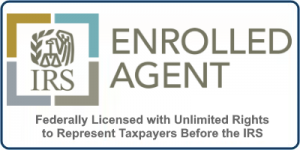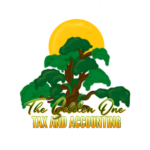
Tax season 2021 is here! (And Yes, I know it is 2022, but taxes are filed in the year(s) after the tax period has closed) With the IRS announcing it will open up for electronic filing on January 24th, many taxpayers are flocking to their favorite tax offices and/or virtual accountants to beat the crowds. Before you jump into tax season 2021, make sure you are properly prepared to avoid any future IRS surprises.
It is no surprise that the past two tax seasons have been………….due to the vast changes in tax legislation and rulings related to COVID-19 relief and tax credits. And one can assume this year will be no different. Despite the potential filing obstacles and the financials delays that may or may not be present this year, the best way to minimize exposure is to be ready!
Income
Unless it is your first year filing (or for those you fortunate to start off as a boss in life),social security numbers and W2s are the most common documents used to prepare a tax return. Other income forms that you may receive are:
- 1099-NEC – For contractor/non-employee payments; like all you side-hustlas,
- 1099-G – For Unemployment payments received; like PUA
- 1099-INT – For interest payments, like from a savings account or bonds,
- 1099-DIV – For dividends earned on stocks; like on Robinhood or Coinbase, OR
- 1099-R – For retirement/pension related disbursement; like taking money out of your 401K or IRA.
Make sure if you worked multiple jobs during the tax year that you wait until you have receive ALL your W2s. This can create delays, headaches and upset stomach if you underreport income and receive a refund, to later find out you now owe twice as much back.
Deductions
When taking deductions, make sure to have documentation ready to give to your tax accountant. Why? Well…the IRS requires it!
Here some common deduction forms that you may receive, and if you do, please do not discard! It could literally save you thousands (or dollars) in taxes:
- 1098-E (Student Loan Interest) – To deduct up to $2,500 in student loan interest for the year.
- 1098-T (Tuition Statement) – To deduct qualified educational expenses.
- Charitable contributions – Retain documentation to substantiate amounts reported. (Most nonprofits will provide a donor summary by the end of January)
- Educator expenses – Retain documentation to support up to $250 (or $500 if two married educators) in educator expenses.
- Moving expenses – Retain documentation to support qualified moving expenses that were not reimbursed by the employer. (Currently restricted to the armed forces)
- 1098 Mortgage – to deduct mortgage interest
- Property/Real estate tax – Retain documentation of amounts paid for personal property and real estate taxes during the year. (Most 1098 statements include RE taxes)
- Medical expenses – Retain documentations for amounts paid out for medical expenses that were not reimbursed or covered by insurance.
- Gambling Losses – Yes, you can deduct gambling losses up to the amount you won. The catch is, you have to win enough to receive a W2-G. Just don’t go adding all your gambling losses to the tax return when you have not won the first dollar.
Special Items
When you receive Letters 6419 (Advance CTC Payments) and Letter 6475 (Your Third Economic Impact Payment) please KEEP it and GIVE to your tax accountant. It will save you processing delays for reporting the incorrect amounts.
Other Common Items
Do not be alarmed if your tax preparer (physical or virtual) requests a copy of last year’s tax return, the taxpayer’s ID card(s)/driver’s license and direct deposit info/VOIDED check – unless you do not trust them.
Having a claimable dependent will require you to provide documents to support your claim. In the past only a name and SSN card would suffice. Today, when claiming the Earned Income Tax Credit, the Child Tax Credit, or the Dependent Care Credit, tax preparers are required to exercise due diligence. This means that you, the taxpayer, may have to show the dependent’s school or medical records, as documentation, amongst other items. Dependent care providers typically provide taxpayer’s with a statement of charges for the year per eligible student enrolled.
Bottom-line
In the end, the goal is to avoid tax surprises by being ready to file. It is okay to wait so that you are positioned to file an accurate tax return. Avoid underreporting income whenever possible, as you never know when you will be audited. Most tax audits happen without your knowledge or input – as the IRS will review your tax account to make sure all income and deductions are accurately reported on the return. In the event you are audited or receive a letter from the IRS regarding adjustments to your tax return that you DO NOT agree with, please contact your favorite firm for assistance.
ALWAYS Be Ready!

To Represent You

Let’s Grow Together!
“ Reach The Golden One in a method that best fits you – Call, Text, Email or Video Chat – It’s Your Call!”
770-648-4778 or 770-648-4044
